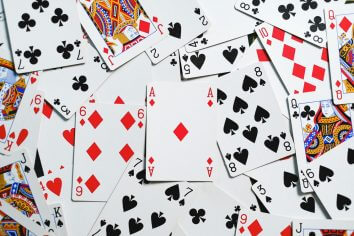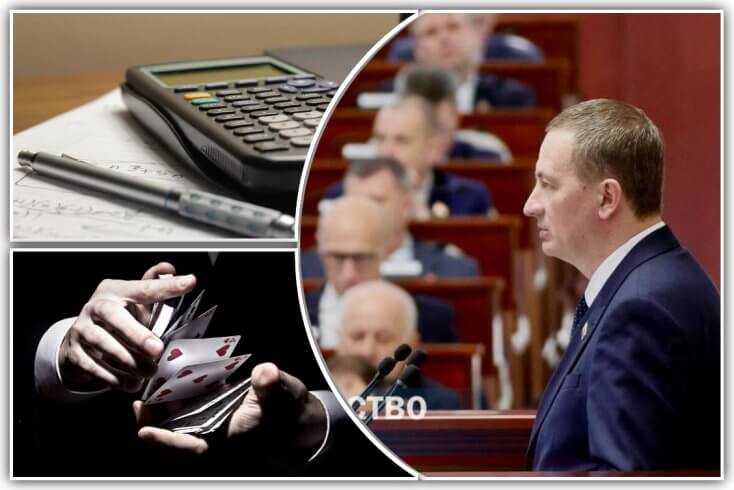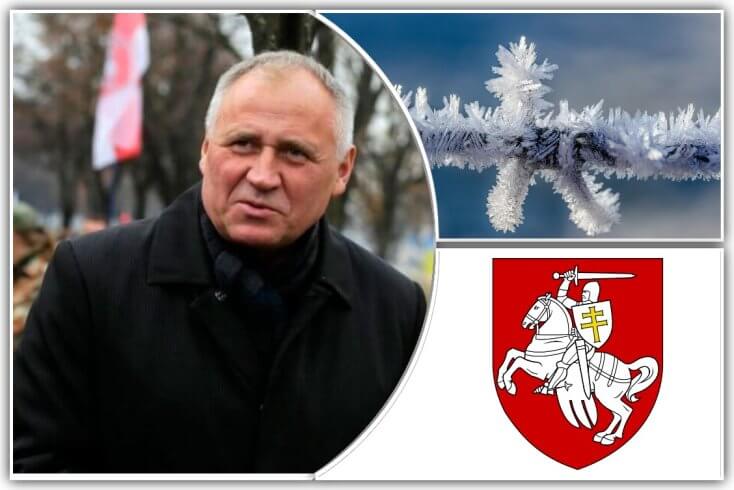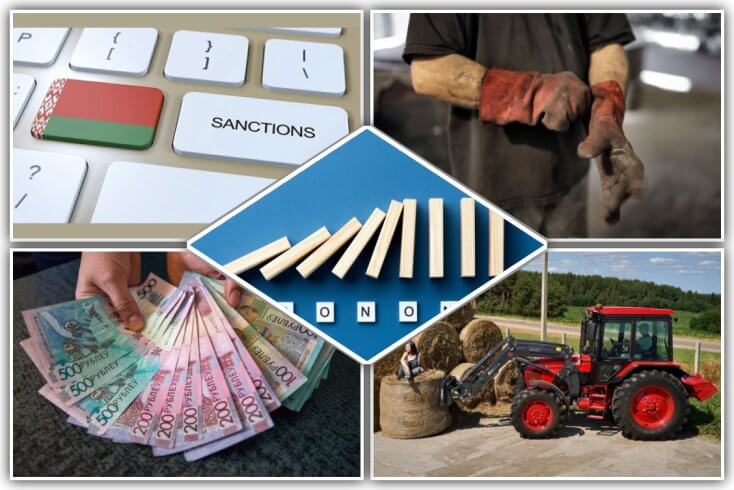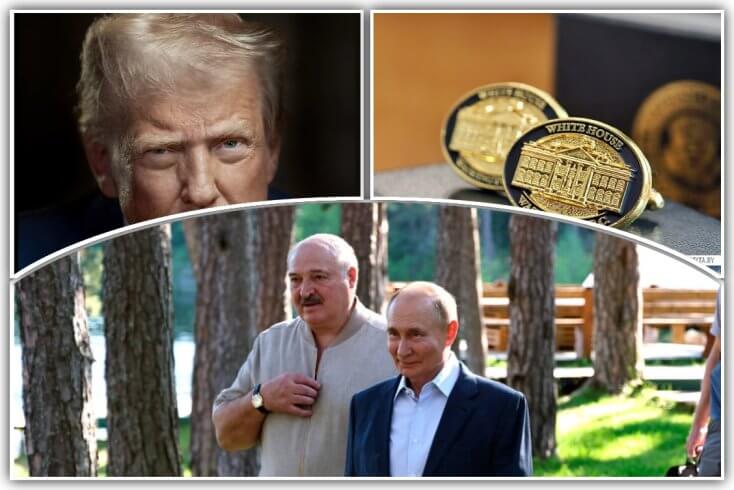“Please give my warmest regards to Vladimir Putin and Kim Jong Un, as you conspire against the United States of America,” US President Donald Trump wrote on Truth Social, commenting on China’s Victory Day military parade in Beijing on September 3.
The event brought together, for the first time, the leaders of China, Russia and North Korea. Alaksandar Łukašenka was also present, alongside more than two dozen foreign heads of state. His recent contacts with both Washington and Beijing have elevated Belarus’ political visibility.
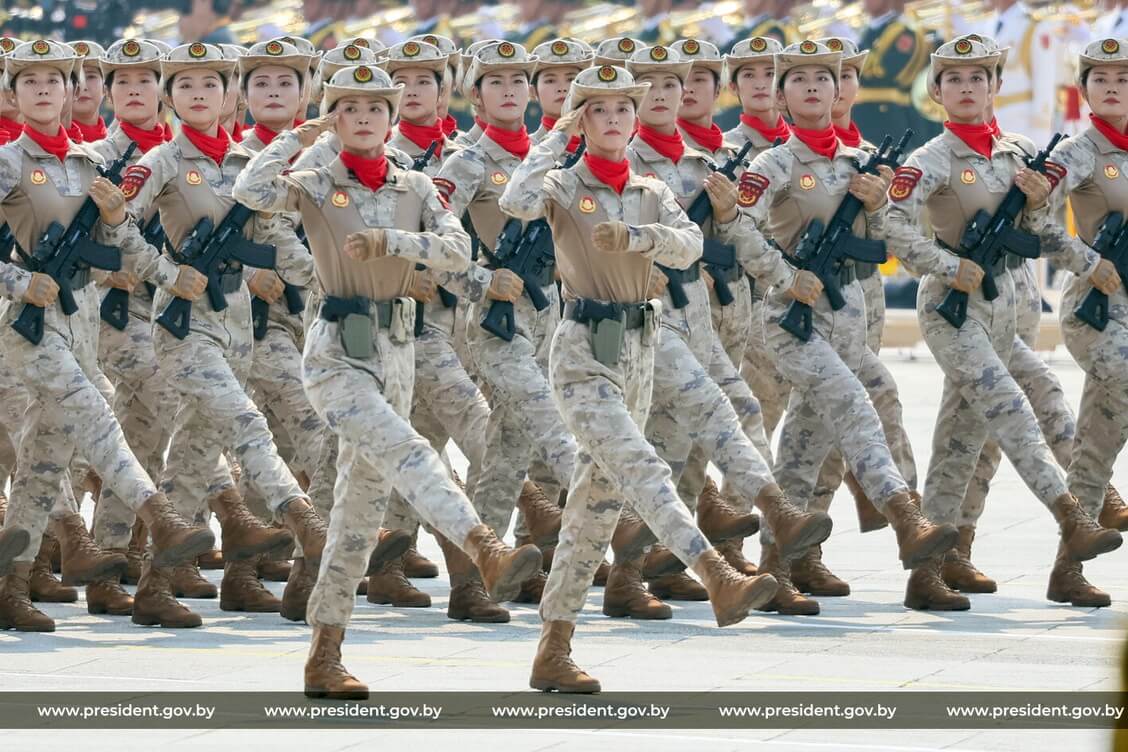
Big chessboard games
Opening the parade, host Xi Jinping declared that “the rejuvenation of the Chinese nation” was unstoppable. He stressed that “China is never intimidated by any bullies,” a thinly veiled reference to the United States. The parade showcased China’s growing global influence.
Łukašenka seeks not only economic benefits from cooperation with China—although he was accompanied by loyal businessmen such as Siarhiej Ciacieryn and Dźmitryj Baskaŭ—but also sees Beijing as a counterweight to Moscow. Meanwhile, Russia itself is sliding into a position of dependency on China.
China rewrites history
The Tianjin Summit of the Shanghai Cooperation Organization (SCO), along with the military display, was another attempt by China to present itself as a global leader.
A superpower, however, is expected to have a glorious past. This explains why Chinese authorities exaggerate their country’s role in the Allied victory in World War II.
China did fight against Japanese occupation, but claiming this was the decisive factor in the global war is misleading. It should be remembered that China’s resistance was heavily supported by both the Soviet Union and the United States.
Trump himself noted that Xi should have mentioned America’s contribution in his speech, saying: “We helped China very, very much” in World War II.
What Łukašenka said in China
In Beijing, the Belarusian ruler praised Xi and China’s achievements while also commending Putin and Trump for their recent talks in Alaska.
“We applauded you very much. Both sides—one should not say there was a winner or loser. You both did very well,” Łukašenka said.
He pledged loyalty to Putin, promising to stand with him “until the end” and to “stop Nazism.”
Łukašenka also recalled: “When the US president called … I said we are one country [with Russia].”
Speculation about Łukašenka’s health
Opposition media highlighted that Łukašenka was visibly hobbling as leaders walked the red carpet in Tiananmen Square.
The day before, at his meeting with Putin, he expressed concern about the heat: “It will be really hot—up to 40, 35 [degrees Celsius]. It will be even hot for you. I am thinking, how will I endure under the sun? But they say they will ensure [a comfortable temperature on the podium].”
A year earlier, Dozhd reported that Łukašenka nearly collapsed during the SCO summit in Astana. His opponents now hope that declining health might open opportunities for political change in Belarus.
On August 22, Łukašenka addressed these rumors directly. Referring to claims that he was close to death, he told state propagandists: “I have recently completed my life’s first full medical examination over two days . . . I don’t mind, give all the tests [to the media], let them publish. The more so, I am happy—keep your fingers crossed—I am OK.”
As expected, state media never released the results, though they could easily have forged them if they wished.
Łukašenka also remarked that “some secret services, including those of friendly countries, are probing into the president’s health”—a thinly veiled reference to Russia. The Kremlin is clearly watching for the right moment to replace Łukašenka with a more reliable puppet. For Moscow, he is not fully compliant—while what it wants is a 100-percent vassal.
Dictators dreaming of immortality
Putin, too, seems intent on ruling forever. During the live broadcast of the parade, he and Xi discussed biotechnologies to extend life. Putin even mused that “people will be able to become immortal.”
Dwelling on mortality is difficult for anyone—but especially for autocrats who see themselves as irreplaceable, even chosen by God. Obsessed with power and its privileges, they cannot imagine life without it.
Łukašenka is a striking example. In a July interview with Time, journalist Simon Shuster asked if he planned to run again. “Listen, if Trump is nearly 80, and he looks great,” replied the 71-year-old leader.
But if he already struggles with heat now, how could a 76-year-old Łukašenka endure the rigors of another presidential campaign in 2030?
Not surprisingly, at his meeting with Xi on August 31, he admitted: “Personally, I have come to the point where we must copy something from you in terms of the political structure of the state.”
He was almost certainly referring to China’s system of selecting leaders through a narrow circle of loyal elites in the People’s Assembly.
Adopting such a model in Belarus would immediately reignite debates over his legitimacy. That is why he hesitates, carefully weighing the risks.
